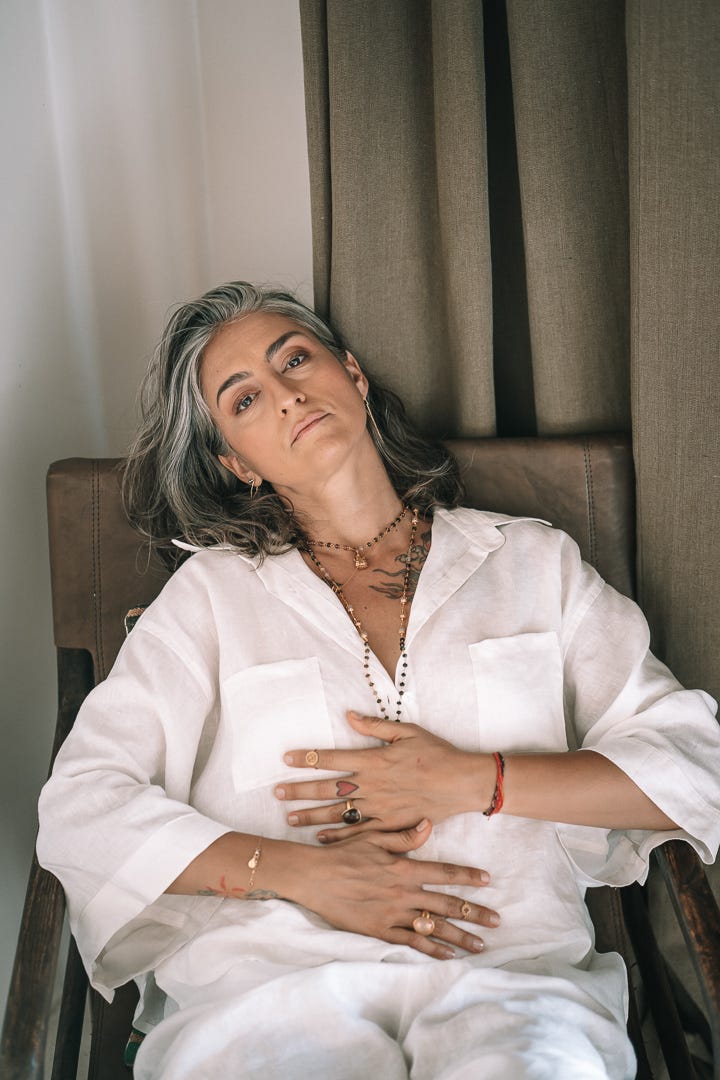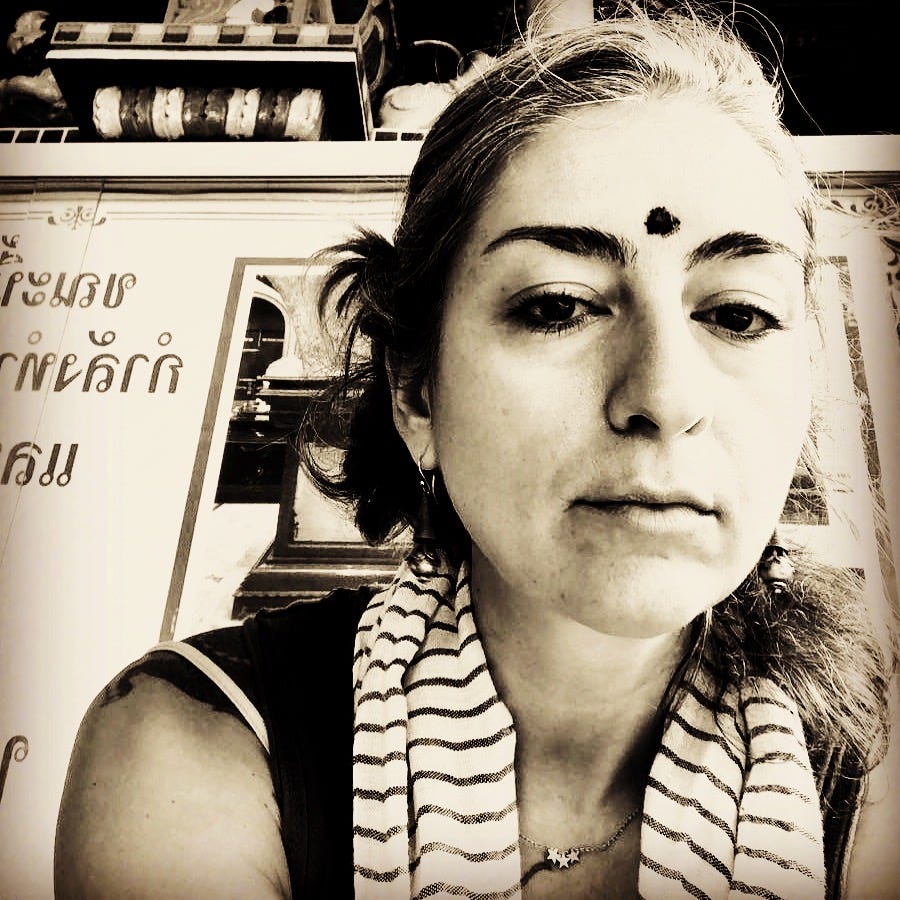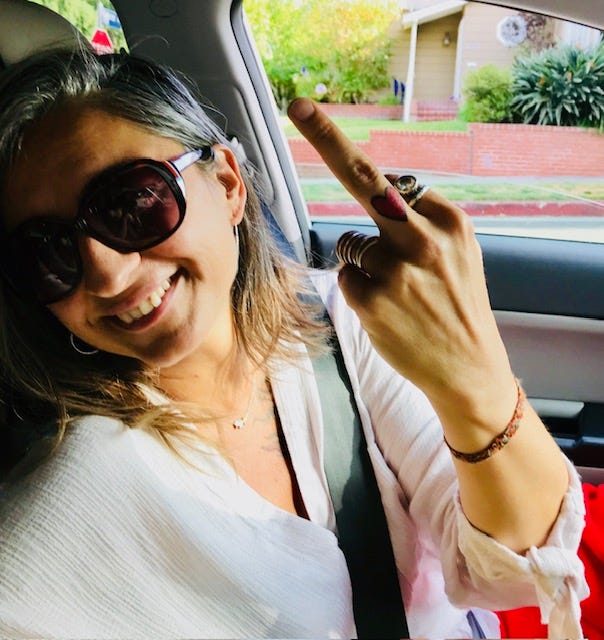“There lay all my love of life: a silent passion for what would perhaps escape me, a bitterness beneath a flame. Each day I would leave this cloister like a man lifted from himself, inscribed for a brief moment in the continuance of the world… There is no love of life without despair of life.”
~ Albert Camus

For some time now, every meeting with another human being has felt like a clash. I might not show it so much as it certainly isn’t for every occasion, but I feel too much, I am aware of too much, I am exhausted by the vibrations after even the simplest conversations, I feel awkward and and I get overwhelmed easily when interacting. But the deepest clash of all is - and always has been - with my inflexible, distressing, and tortured self. Every day feels like it is here for the same reason - to find out what I think, what I feel, who I am, and to know where I stand.
If I may say, this part of my life, this time period, has meant to show me something about myself. It seems to be discovering and unveiling each day something new about my despair, doubt and the ability to dive deep into the darkness. It has also been discovering something about hope; as if I didn't have the privilege of knowing it, I probably wouldn’t have been here today. And, what’s interesting, I don’t mind this state at all, as it offers me a certain comfort and always teaches me something new about myself. But, I am often self-conscious about it as I have to go out to the world and show up for others. This is where it gets tough. Therefore, I mostly enjoy those times in solitude when I get to take a walk with Mala or write and read in my room (and yes, I also escape into the parallel universes of Netflix shows).
A great deal of art has been born out of various despairs. There is a connection between a creative attainment and a “divine discontent”, as some artists call it. If it wasn’t like this I don’t know what I would be writing about every week. I have noticed that I am naturally drawn to the darkest of the places, to the heaviest of the feelings, and I tend to think of those who are continuously optimistic and enthusiastic about life as naive and shallow. How can a person know optimism and hope, but not despair and sorrow?! How is it possible that there are those who do not think about death or the meaning of life?! How can anyone who contemplates on life and humanity, not want to contemplate on death and despair too?! This was always a mystery to me.
When we are caught in the whirlpool of pain and despair in a given moment, we tend to forget the recurring nature of things. We forget that the present moment always looks different from the inside than from the outside. As James Baldwin puts it: “It is said that his time was easier than ours, but I doubt it — no time can be easy if one is living through it.” When we are in it, it’s not easy and certainly not comparable to anyone else’s difficulties. Furthermore, we simply forget that our particular present moment, with all its anguish and victories, is not an isolated and special event, but rather a massive current that have roared long before our time, and will continue to roar long after we are gone. This is why difficult times often seem so lonely and isolating.

“One has to permit people to become desperate, to become wholly lost, that only then are they ready for the right word, only then can they avail themselves of the truth. To withhold it then is a crime. But to nurse them along is a worse crime. The human instinct to spare the other person his agony is a fallacious instinct. Here the subtle temptations, the vicious and insidious ones, because so confused and entangled, enter in. On this so-called human plane it is the ego which commands — often in the most amazing disguises. The temptation to be good, to do good, gets us all some time or other. It’s the last ruse, I feel, of the ego.” ~ Henry Miller
Our society does not allow us, and certainty does not encourage us, to feel desperate, to ask questions, to be in agony or doubt, to experience an angst and even a wish to die. We’re surrounded by messages such as “good vibes only”, “no drama” and “keep calm and stay positive”. Everything and everyone jumps into this state of “fixing” when a person is struggling. Therapists are trained in helping, doctors in fixing, coaches in coaching us out of this state, and new age philosophies in manifesting a better, brighter tomorrow. But allowing one to feel these difficult feelings is very much necessary if one is going to reveal their true self. We can’t know light if we are not willing to know darkness. To be lost is to walk an unknown path - as Carl Jung tells us: “If the path before you is clear, you’re probably on someone else’s.”
It takes a lot, for me, to freely express to my friends and family how I really feel without fearing them jumping into panicking and getting into a “fixing'“ mode. When they offer their methods and I refuse, they often ask me - “but, why would you want to feel this way and not feel better?” Because I need to go through this on my own in order to gain clarity and get out on the other side. Because despair is a natural human quality, an emotion, and one who wonders about the existential questions will often come across it. Because I want to get through it my own way, not in your way. Because I am not a broken vase so you can glue me and put me together. Because, because …
Somehow, when we surrender, though, the problem comes to an end. I have tried this a few times, and I’m telling you - it’s marvelous and it works. But, we usually (well, at least I do) try to solve it, or even defeat it, and, with that attitude, we only set up more resistance. What you resist, persists, right? The most difficult thing to admit, probably for all of us humans, is that we control nothing. And, as counterintuitive as it can be, the solution would be to be able to put yourself in tune with the forces in the workings behind. So, the solution would often be to do nothing.
“Does anything in nature despair except man? An animal with a foot caught in a trap does not seem to despair. It is too busy trying to survive. It is all closed in, to a kind of still, intense waiting. Is this a key? Keep busy with survival. Imitate the trees. Learn to lose in order to recover, and remember that nothing stays the same for long, not even pain, psychic pain. Sit it out. Let it all pass. Let it go.” ~ May Sarton
Let’s consider what self-help really means in those moments of deepest despair — those times when it feels like the dignity, grace and patience cannot live under a sky so murky and turbulent; when it seems like there is absolutely no remedy, no escape coming from the outside, but there’s a remedy within us. That’s when self-help comes in - but not in the form of a self-help book, or a friend’s advice, but rather in the form of an individual intuitive response. When did we stop listening to our long-lost companion, our soul, and start listening to anyone and everyone else?! Whose lives have we been living?
There are those times of fierce withdraws in which our minds may seek a safe haven and a temporary refuge. I know this feeling too well - this feeling of desperation and recklessness, and unsteady self-help, when some of my friends seem to grow cold, and others become distant and busy, and the world seems to discard me and abandon me, and, still, the heart somehow gets strength from its own affliction, converting its own injury into open loving arms. These times when I can’t seem to justify and rationalize what is happening, but I know it’s a deep cut, and it hurts so much I can’t take it (but I actually can). Although full of pain, there is so much strength here, as well as dignity and hope.
How May Sarton beautifully puts it: “The reasons for depression are not so interesting as the way one handles it, simply to stay alive.” That’s when our imagination and creativity kick in! Taking journal and writing, going for a swim, taking my dog outside and going for a long walk in the woods, watching a romantic comedy, eating a cookie, crying, yelling, crying, yelling, crying, wiping the tears, reading some poetry … and asking questions. Always asking questions (I’m an analyst in my heart).
Only a few other experiences stimulate feeling of despair more readily than the defiance of freedom and the loss of agency - that sense that life, circumstance, or some other external factor is blocking and disabling the outcomes we are hoping for and desiring. Sometimes, although we are the ones who put ourselves in a certain situation, and despite the fact that there is a choice available at all times - we still manage to feel imprisoned and without options and hope. I speak from a personal experience, just so you know you are not alone if you’ve experienced this.
I read somewhere that “freedom and despair are complementary forces that counterbalance each other”. By adjusting how we relate to despair, we get a chance to know freedom more personally and in depth. What does this bring up for you? For me, it’s a thought, or rather a teaching from Buddhism - that the hell realm is nowhere else to be found but in our own mind. Heaven or hell is dependent upon our state of mind. Similar would be with freedom, for me. I am only as free as much as I believe I am free.
“Freedom consists of how you confront your limits, how you engage your destiny in day-to-day living … Human dignity is based upon freedom and freedom upon human dignity. The one presupposes the other.” ~ Rollo May
And yet we (well, at least me) often lose sight of this daily self-creating aspect of freedom. Often we see freedom as our birthright, forgetting that each of us must rediscover it and understand it for themselves. Freedom, in this sense, lies in what we choose to do with the cards we’ve been dealt. So, we can change the game we are playing, but not the cards we have been dealt. We can use the available resources, be aware of the limitations of the circumstances, and do our best with what has been given to us. Does that make us free? I believe so.
What might be helpful here is if we think of despair as a constructive and encouraging emotion, the one that is often a necessary prelude to a significant realization (or accomplishment). When despair pushes us to rock bottom and forces us to let go of everything we’ve been so attached to, including our own obsessions, imaginary and delusional hopes, naive beliefs about life, our expectations, plans and dreams - it actually allows us to build ourselves up in a completely new way. In a way not possible to be built if we’ve stayed within the comfortable framework of life, a cushioned and “safe” one and undisturbed by the unexpected elements of life. That is what happens when we begin to step out of our comfort zone. Like Pema Chodron says, in the Embracing the Unknown, “We begin to get comfortable with uncertainty and our whole experience becomes more inhabitable.”
“Authentic despair is that emotion which forces one to come to terms with one’s destiny. ~ Rollo May
Despair is the great enemy of make-believe, it is the enemy of our tendency to ignore obvious facts of life and pretend they don’t exist. It demands of us to face the reality of our life. Although it is not freedom itself, despair is a necessary preparation for freedom. Reality sets out to us, requiring that we drop all compromises, happy mediums, temporary emergencies and the ways of being dishonest with ourselves, and it confronts our bare and exposed lives. Despair is what shakes an individual up to their core before they need to make new resolutions in life.
But, what about hope then?
While reflecting on all this, I came to a realization that those who can feel healthy despair are often those who also can at the same time experience the most intense pleasure, joy, and contentment. Those who are not afraid to experience any intense emotion - the “deep feelers”, and highly sensitive people - are the ones to be praised and acknowledged. I don’t know about you, but I somehow believe more firmly in the self-respect and the goodness of human beings after seeing an act of misfortune and catastrophe, rather than comedy. The worst position of all is, perhaps, to brag about never having been in despair, as that would convey that the person has never been authentically aware and conscious of themselves.
As Maira Kalman tells us - “We hope. We despair. We hope. We despair. This is what governs us. We have a bipolar system.” That is how we survive and float in this infinite ocean of uncertainty that we call life. Just as the universe, the whole Creation, cosmos, seems to exist because of some accident of chance that most of us are yet to comprehend, we, humans, exist — and continue existing — probably because there is more hope than despair in us. Because, I am sure that if we were ever deeply and unconsciously certain that our future would be no better than our past, we might deeply wish to stop living (and some of us, unfortunately, do). But, there is always a chance. And that keeps us afloat.
“Joy … follows rightly confronted despair.
Joy is the experience of possibility, the consciousness of one’s freedom as one confronts one’s destiny.
In this sense despair, when it is directly faced, can lead to joy.
After despair, the one thing left is possibility.
We all stand on the edge of life, each moment comprising that edge.
Before us is only possibility.
This means the future is open.”
~ Rollo May








"But the deepest clash of all is - and always has been - with my inflexible, distressing, and tortured self."--oh my dear, how I relate! Your prose is so clear and revealing in this post and I appreciate how well you articulated it all, but didn't leave us in despair...
"When despair pushes us to rock bottom and forces us to let go of everything we’ve been so attached to, including our own obsessions, imaginary and delusional hopes, naive beliefs about life, our expectations, plans and dreams - it actually allows us to build ourselves up in a completely new way."
Yes and we need reminders about this!
Please keep writing!
I just read your beautiful article and what stuck with me the most was “freedom and despair are complementary forces that counterbalance each other”. It’s my daily life struggle. The idea that I can and may never truly know myself until I am free. Free from all of the people, distractions, and obstacles that keep me from truly knowing myself. But with that I’d also lose so many parts of me. Maybe one day, I’ll feel ready, but not today. And that’s ok. Thank you for being you, for being a deep thinking being and for sharing yourself.